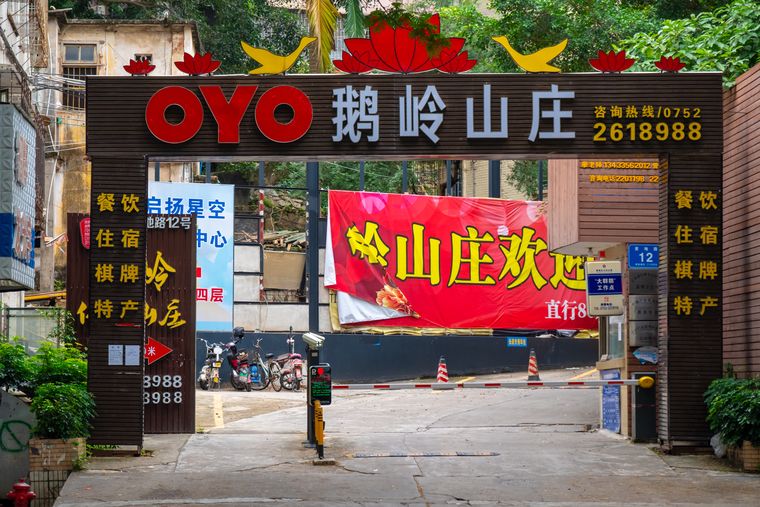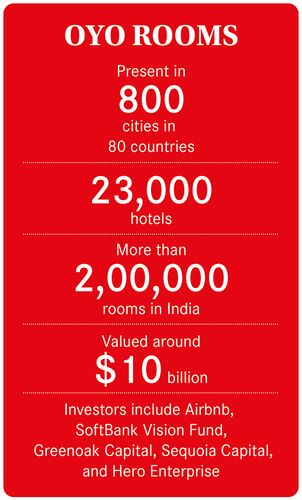During the early days of your startup, were you sceptical at any point about its future?
While you are in the process of coming up with a truly innovative solution, it is essential to keep an open mind. One should accept failure, and be willing to learn, unlearn and relearn. I have always believed that an overnight success story is backed by at least five years of hard work and perseverance. Often it is not the most complex solution, but the most creative one that helps solve a problem. The importance of innovation cannot be overstated.
For any business, and startups in particular, it is vital to inculcate the spirit of curiosity and lateral thinking to succeed in the long run. At times, we tend to get carried away by what we think are good ideas, but in reality they may not serve the customers in any way. It is crucial that we understand the customers’ requirements and direct our efforts towards providing the best possible solution.
Also, I think perseverance is an irreplaceable trait. There is always light at the end of the tunnel. People give up early without realising that impactful or big things take time. It is important to keep putting in effort.
What do you think has really clicked for your business?
It is a very exciting time for OYO, as we make great living spaces come alive across the world, from Texas to Tokyo. I always say it is still ‘Day 0’. I am still quite young and have a long way ahead. Each time I see an OYO in a new city, it fills me with great joy and enhances the drive to keep going forward in the future. Going back to my early days, right after my venture Oravel, I had made friends with a lot of hotel owners. I stayed with them, one day with each, for a couple of months. I realised that there is a fantastic opportunity as 96 per cent of hotels across the world have less than 100 rooms. There was also a disconnect between demand and supply of quality living spaces. I felt that it was an exciting opportunity and we should absolutely invest in it. That is what inspired me to set up the first OYO hotel. I felt even if there is a 10 per cent chance of success, I will take it. Whenever I have two opportunities—risking it vs regretting it—I would invariably choose to risk it because I never want to regret it. The first asset was a success. It went from 19 per cent occupancy to 90 per cent in the first month itself.
Who all influenced you in your initial stages of business and life?
I started Oravel in 2012, but that required modifications. Right after that, I had the opportunity to become a Thiel fellow. Peter Thiel is the person who started PayPal. I first saw him in the movie The Social Network, in which he writes a $1,00,000 cheque in favour of Sean Parker as one of the earliest investors in Facebook. It had a deep impact on me. I thought how amazing it would be if I ever get an opportunity to meet Thiel. I searched about him and found the Thiel Fellowship. It is a programme where he gives $1,00,000 to 20 people under the age of 20. The acceptance rates are very low. There was also a precondition that you have to leave university. I got selected. After that I moved to Bay Area, California, in the US for some time. There I realised that thinking big and solving at scale is very important. Thinking and having a big mission is important no matter how small your company is or which corner you run your business in. Nobody in the Bay Area thinks that he wants to be the biggest business in California; everybody has a dream of being the most impactful company in that segment in the world.
I have also been lucky to have people such as Abhinav Sinha, Maninder Gulati, Kavikrut, Anil Goel, Aditya Ghosh and Rohit Kapoor, who are some of the best in the industry and the best problem solvers that you could get. Most of my growth has come by working with the right kind of people. I still spend majority of my time learning from people on the ground because I think that essentially makes an entrepreneur’s value proposition unique. During the initial days, I was advised by one of my investors about the importance of building a strong team. It is one of the most invaluable lessons I have ever learned. The leadership team has remained unchanged, and I count this as a crucial factor behind our growth.
You have cracked the tough Chinese market.
China has always been a market we wanted to venture into, as the country offers tremendous opportunity both in terms of the market size and the volume of travellers. Moreover, its tourism industry is at the cusp of booming and flourishing and enjoys a steady influx of tourists. During our research before entering this market, we observed that China’s hospitality landscape is as fragmented as that in India. It has more than 35 million rooms that are unbranded. The country also had several hotels with less than 100 rooms. China was an inflection point for our company because that was when we stopped thinking of ourselves as Asia or south Asia or a southeast Asian sort of a company. China really made us believe that we could make a big difference globally.
Another thing that stood out was the outstanding quality of talent in China. That further strengthened our belief in our ability to put together a high performing team that helped us in successfully launching our Chinese operations. Our footprint in China has already surpassed that in India. We believe that our secret to success in China is the way we have built our business in the country. We started on a clean slate. We did not approach the market like an Indian startup setting shop in China, but like a Chinese player building and localising the OYO business model to make it work in the Chinese market. Each and every aspect of our operations in China is highly localised. For instance, most foreign companies look at recruiting bilingual management teams in a different country. We did not make that a criterion because a local company would not do that in China. If we had done that we would have narrowed our talent pool.
What prompted the $2 billion share buyback plan?
Subject to regulatory and shareholder approval, through RA Hospitality Holdings (Cayman), I signed a $2 billion primary and secondary management investment round, supported by global institutional banks and my financial partners. The company’s strong growth, improved margins and superior improvement in customer experience led to this move. Our goal is to become the world’s biggest hotel chain by 2023. With the $2 billion share buyback, I think the company is well placed to achieve exponential growth. The capital received through the forthcoming primary round will help boost OYO’s expansion plan in India, the US, China, the UK, European Union, and southeast Asian markets. I am not at liberty to comment further.
What kind of mechanism do you have to address the complaints from customers?
We dispensed more than Rs45 crore under our Cash in Bank initiative for supporting hotel owners through quality upgrades and renovations. In a related move, about 1,000 building owners in the chain have been penalised for not adhering to the required quality norms and more than 9,000 have been awarded under its incentive programme. The penalty imposed on building owners is a result of a comprehensive 3C evaluation programme for all the 10,000 plus hotels that are part of the company’s growing India and the south Asian network. The 3C score of a building is a strong determinant of the building owner’s and our commitment to meet standards and thereby delivering great occupancy and positive recommendations. Any building that does not maintain the necessary 3C level is churned out of the OYO system.




